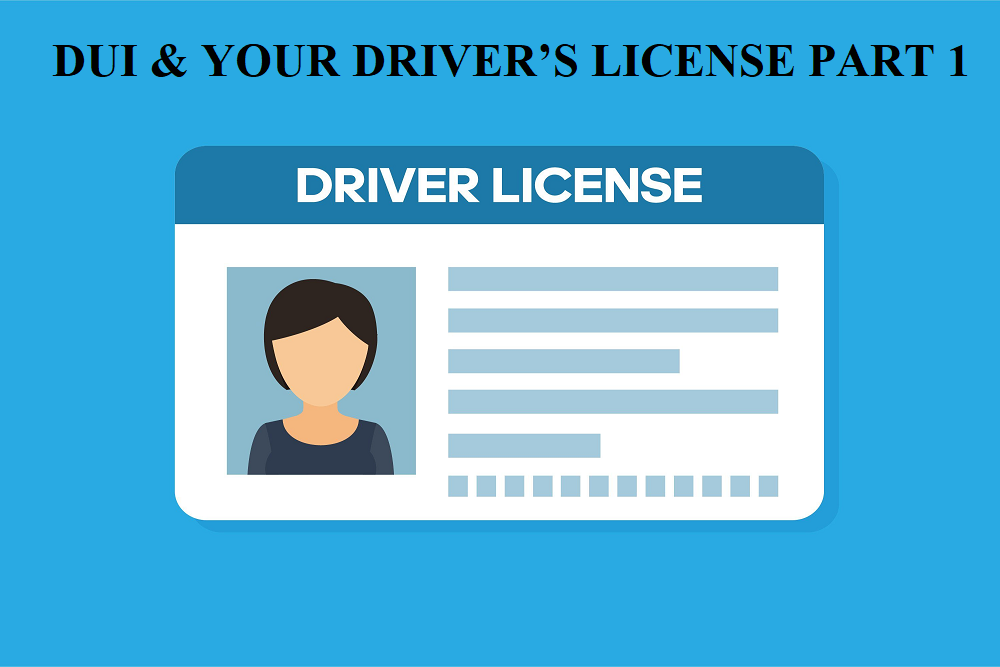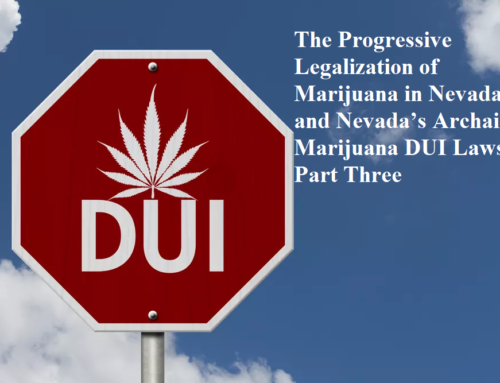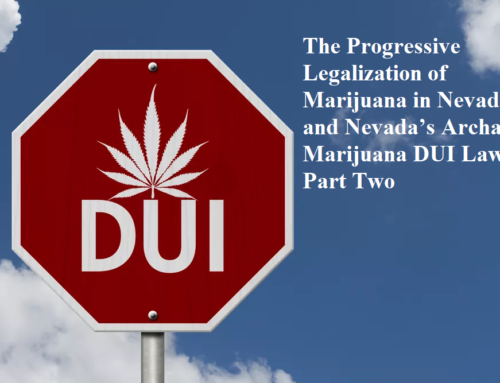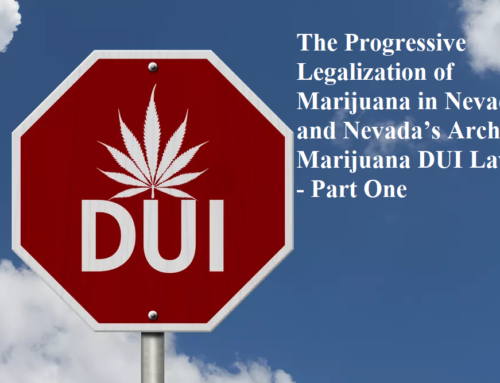Nevada DUI Laws
With regards to Nevada DUI laws, DUI convictions are considered crimes versus traffic offenses in Nevada. In fact, in Nevada you do not receive license demerit points, which can result in a suspension if you accumulate enough, for DUI convictions. Rather, DUI convictions result in driver’s license revocations. The length of the revocation period hinges on the nature and severity of your DUI offense and the DUI penalties you are facing. Driver’s license revocations are different than driver’s license suspensions. A driver’s license revocation means that the licensee’s privilege to drive a vehicle are actually terminated. NRS 483.150 outlines that if your privileges are revoked/terminated, Nevada law requires you to obtain a new license “only as permitted in NRS 483.010 to 483.630.” NRS 483.150. This means that you may be required to satisfy any and all requirements that are imposed on a new driver, the same such requirements that are imposed on an individual that just turned 16 years of age.
Although the Nevada DMV is often too busy to subject a revoked driver to all initial testing requirements, the law certainly enables it to do so if it is so inclined. Conversely, a license suspension “means that the licensee’s privilege to drive a vehicle [are] temporarily withdrawn.” NRS 483.180. Thus, although both suspensions and revocations impact a citizen’s ability to drive, a license revocation is far more serious than a license suspension.
Implied Consent Law
Like every other state in the country, Nevada has an “Implied Consent Law.” Implied Consent laws are implied agreements between citizens and their respective States wherein the citizens impliedly agree that, by driving a vehicle on state roadways, they consent (agree) to submit to a chemical test of their breath, blood, or urine to determine their alcohol or drug content provided they are asked to do so by a law enforcement officer that has reasonable grounds to believe that they were driving while impaired. Nevada’s “Implied Consent Law,” in pertinent part, provides:
‘any person who drives or is in actual physical control of a vehicle on a highway or on premises to which the public has access shall be deemed to have given his or her consent to an evidentiary test of his or her blood, urine, breath or other bodily substance to determine the concentration of alcohol in his or her blood or breath or to determine whether a controlled substance, chemical, poison, organic solvent or another prohibited substance is present, if such a test is administered at the request of a police officer having reasonable grounds to believe that the person to be tested was . . . driving while under the influence . . .’ NRS 484C.160(1).
Why are These Laws Important?
Implied consent laws are relevant as they have direct and significant consequences concerning an individual’s future driving privileges. In Nevada, there are four ways that your driver’s license privileges can be revoked in connection with a DUI arrest: (1) an administrative revocation for having an unlawful (“per se”) level of alcohol in your system; (2) an administrative revocation for having a “detectable amount” of a controlled substance or a prohibited substance in your system without a valid prescription or a valid registry identification card; (3) an administrative revocation for refusing to submit to an evidentiary test; and (4) a criminal conviction revocation. As you will read in greater detail in the following blogs, the severity and duration of the revocation period hinges upon the nature of your offense.
Nevada’s “per se” revocation law is simple. Any motorist that gets caught with an alcohol-level of 0.08 or higher, will have their driver’s license administratively revoked for 90 days. Per se level administrative revocations, no matter how many DUI arrests or convictions you have, are always 90 days. Many people, including lawyers, misunderstand the duration of per se administrative revocations. They confuse them with criminal conviction revocations. Nevada’s “refusal” law is also simple. If an individual refuses to submit to an evidentiary test of his or her blood, breath or urine, after law enforcement has requested that they do so while having “reasonable grounds” to believe that the individual was driving under the influence, the individual will have his or her driver’s license administratively revoked for one year. The length of the revocation period becomes three years if the individual has a prior refusal on his or her record within the previous seven years. Finally, if an individual is ultimately criminally convicted of the DUI, and/or pleads guilty to the DUI, the length of the individual’s driver’s license revocation will increase as follows:
| CRIMINAL CONVICTION LICENSE REVOCATIONS | |||
| Number of DUI Criminal Convictions (within 7 years) | Length of Administrative Revocation Period | Length of Additional Revocation Due to Criminal Conviction | Total Length of Revocation Period |
| First Conviction | 90 Days | 0 Days | 90 Days |
| Second Conviction | 90 Days | 9 Months | 1 Year |
| Third or More Convictions | 90 Days | 2 Years, 9 Months | 3 Years |






